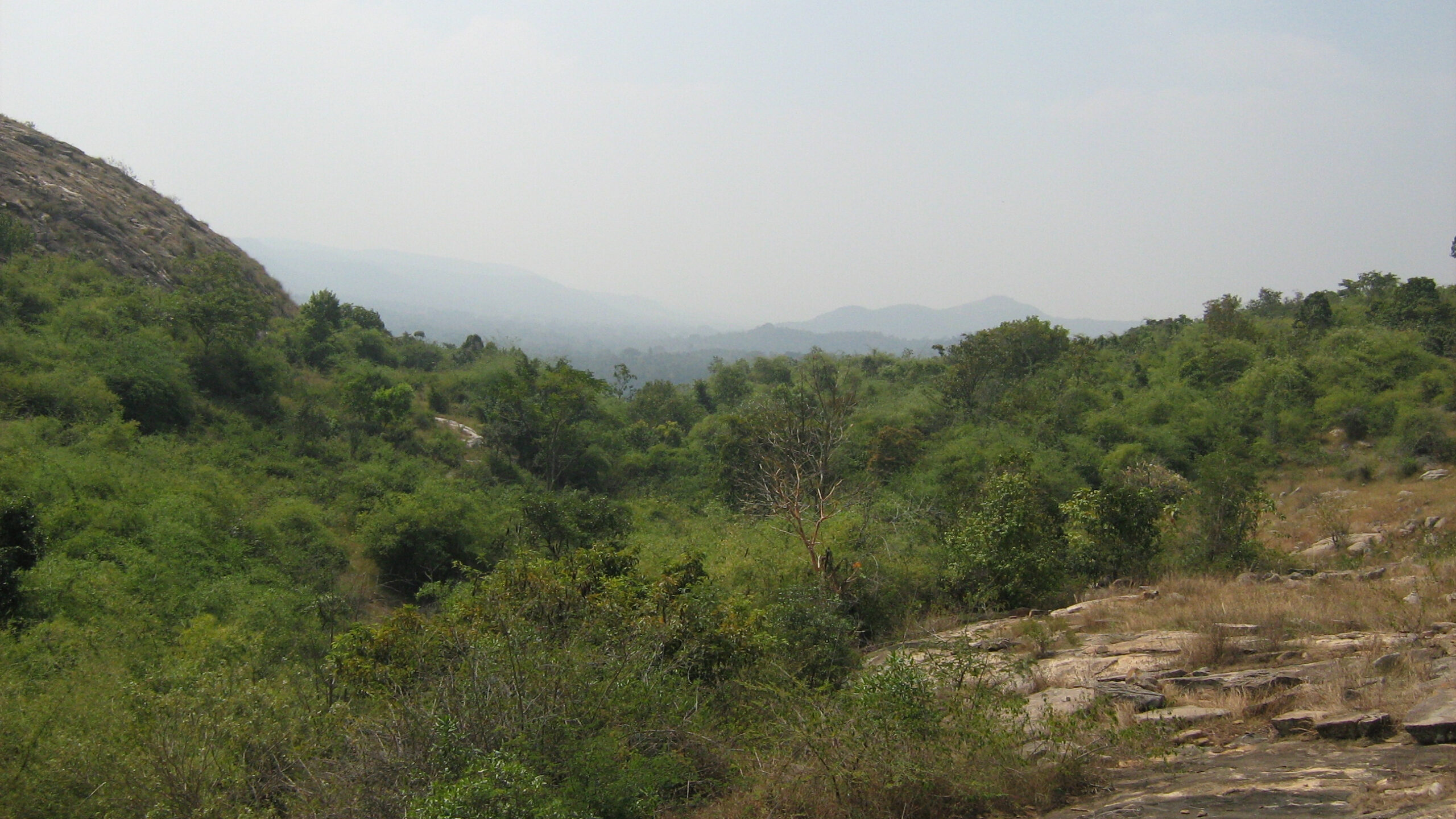Driving Elephants
Next to the city of Bangalore, India, the elephants of Bannerghatta National Park are being pushed towards extinction. Caught between a shrinking forest habitat and an ever expanding urban population, elephants are forced to live in thin forest strips. Living on the edge they are often tempted out into human spaces. Since 2004, A Rocha India has pioneered scientific research and community-based techniques to mitigate human-elephant conflict, which is the biggest threat to local elephant survival.
The Asian Elephant
The Asian Elephant is the largest land mammal in Asia. They are extremely sociable animals – forming groups of six-seven females, led by the matriarch – and spend a large proportion of their day feeding on grasses, roots, leaves, bark and stems. Their favourite foods are cultivated crops such as bananas, rice and sugarcane, which often brings them into direct conflict with local farmers. Despite having the highest level of protection in India, the Asian Elephant’s survival is threatened by the destruction, degradation and fragmentation of natural forests as well as the ongoing issues of ivory poaching and interactions with people.
Bannerghatta National Park
Bannerghatta National Park is a long but narrow fragment of the expansive Mysore elephant range that extends across the states of Karnataka, Tamil Nadu and Kerala. This range is home to the largest congregations of Asian Elephants in the world and Bannerghatta is home to around 160 of them. But 40% of the national park’s northern boundary is surrounded by the ever expanding city of Bangalore. The landscape quickly changes from forest to dense urban settlements with major roads and railways scattered throughout. Bannerghatta is perhaps the only elephant inhabited national park in India that lies this close to an urban metropolis. Within just a few kilometres, elephants that move outside the protected area find themselves deep in human settlements.
When male elephants move further away from the protection of the national park in search of foraging grounds, breaking fences into farms and plantations, this puts the elephant in direct conflict with people, as a result of which they can be injured, killed or captured. The co-existence with this large, intelligent and sometimes dangerous wild animal sometimes brings both economic loss and danger to the lives of local communities.

A Rocha India is working in partnership with the Karnataka forest department, Asian Nature and the India Institute of Science to carry out population studies, education and awareness, which have gained widespread participation. Elephants are tracked and surrounded to prevent them moving further. Routes are meticulously planned to drive elephants back to the forest as quickly and as safely as possible, trying to avoid major traffic routes and dense areas of inhabitation. And the farmers’ use of the landscape is being examined to get a clearer understanding of the interactions, so that creative ideas – such as elephant-proof barriers – can be developed to help address them. In addition, A Rocha India runs ecology camps for local schools, organizes public talks in the city and trains new forest guards.
Watch ‘Driving Elephants’, a 26 minute feature film showing the consequences of elephants coming out into human spaces, and read what it was like to film.
Find out more about elephants and A Rocha India.